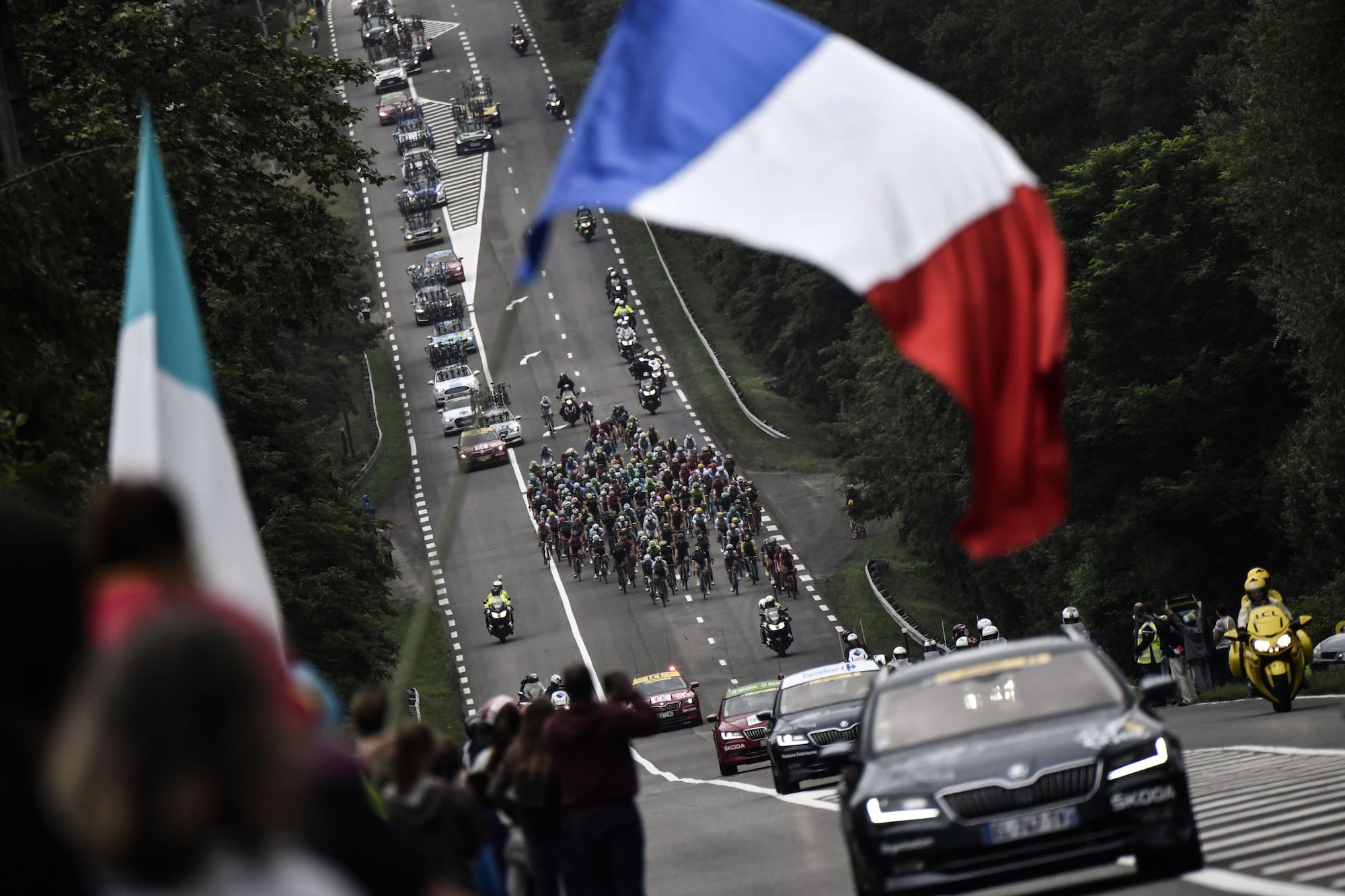Anti-doping retests target samples from 2017 Tour de France
A previously undetectable doping product has been revealed by the Operation Aderlass investigation

Tour de France 2017 (Jeff Pachoud/AFP via Getty Images)
The 2017 Tour de France has become the target of doping retests after a previously undetectable performance-enhancing drug was uncovered by Operation Aderlass.
This follows the UCI requesting samples from 2016 and 2017 be re-tested following testimonials given during the investigation. Six months later, the Cycling Anti-Doping Foundation (CADF) are now looking for a specific doping product and samples from the 2017 Tour de France will be given particular attention, Belgian newspaper Het Nieuwsblad reports.
The identity of the previously undetectable performance-enhancing drug is currently unknown but is believed to be a product originally made in America. They also say the doping labs in Seibersdorf, Austria, and Cologne, Germany, which is also the largest WADA-accredited laboratory in the world, are responsible for the re-testing.
"On the basis of additional information...we have identified the relevant samples and performed the first analyses. We also refrain from commenting," CADF said.
“During that period [2016-2017], there were a number of prohibited substances that were not available on the regular pharmaceutical market and for which there were not yet optimal detection methods in the labs. These methods have since been improved," Peter Van Eenoo of the Ghent doping lab added.
Operation Aderlass was initially a police investigation into doping in endurance skiing but hit professional cycling after WorldTour riders and staff were implicated in the scandal.
The latest race content, interviews, features, reviews and expert buying guides, direct to your inbox!
So far, six figures from professional cycling have been banned over their links to the Austrian and German blood doping ring.
In May 2019, the blood doping scandal hit the Giro d’Italia and the Tour of California after the UCI published four names believed to be connected with the case.
Slovenian Bahrain-Merida rider Kristijan Koren was pulled from the Giro by his team, while Kristijan Đurasek from UAE Team Emirates was removed from the Tour of California over the revelations.
Then in October, Koren and Bahrain-Merida assistant sports director Božič were banned for two years each and fired by Bahrain-Merida while Đurasek was banned for four years in November.
Former Groupama-FDJ rider Georg Preidler and former Aqua Blue Sport rider Stefan Denifl have also both been banned from the sport for four years.
In an Austrian court in January, Priedler admitted to blood doping "out of pure curiosity" but denies ever taking any performance-enhancing substances.
In Denifl's trial in February, his defence lawyer claimed there was "90 per cent doping" in cycling.
Speaking in court, Denifl added he was "not a criminal" and "I wouldn’t have got a contract without doping".
Operation Aderlass centres around the German doctor Mark Schmidt, with whom Denifl communicated using a prepaid mobile phone from 2016.
Schmidt has been charged by German authorities in connection with the doping scandal but he has yet to comment on the allegations.
Jonny was Cycling Weekly's Weekend Editor until 2022.
I like writing offbeat features and eating too much bread when working out on the road at bike races.
Before joining Cycling Weekly I worked at The Tab and I've also written for Vice, Time Out, and worked freelance for The Telegraph (I know, but I needed the money at the time so let me live).
I also worked for ITV Cycling between 2011-2018 on their Tour de France and Vuelta a España coverage. Sometimes I'd be helping the producers make the programme and other times I'd be getting the lunches. Just in case you were wondering - Phil Liggett and Paul Sherwen had the same ham sandwich every day, it was great.